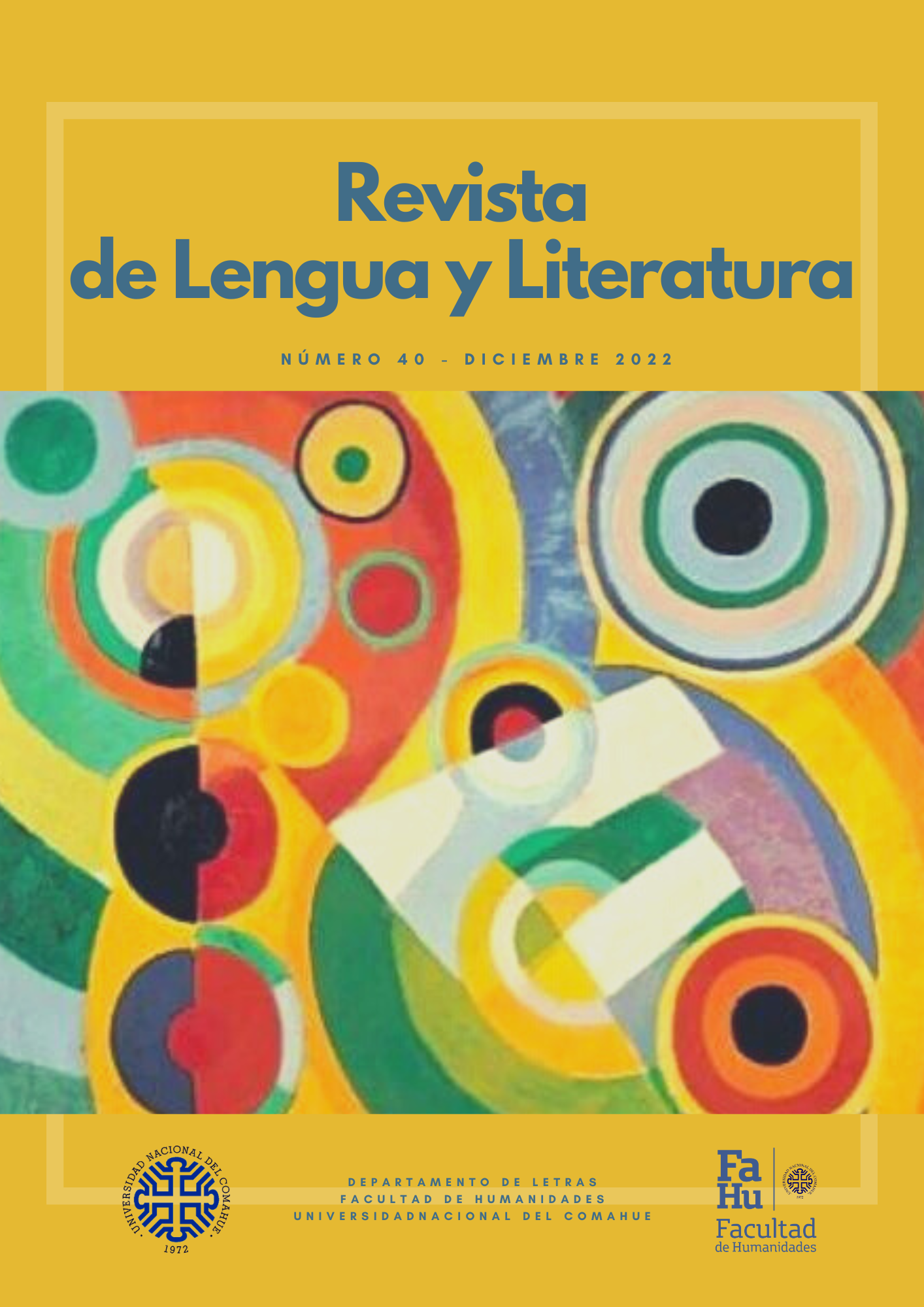Fractured Identity in La Voyeuse Interditeby Nina Bouraoui
Keywords:
Identity, Confinement, Patriarchalism, Imagination, Bodily disciplineAbstract
Identity is something that evolves in the protagonist Frika, fluctuating from an experience of confinement that leads her to cultivate her imagination, a previous step to her activity of writer, to rebellion that leads her to a freeand overcomingdevelopment of her personality. Betweenthese twoextremes, the contrasts thatshowtheoutside world and theinsideof the house to which the entire single Muslim woman life is reduced, the identity fights against the ancestral and patriarchal impositions is shaped. In the confinement where womenlive,they see their destiny in the older one, that is also a figure of death, because she is opposite to life and sex. Confinement and silence is the outrageousduo from whichyoung womencanget outthroughan arranged marriage, in an exercise of male power to discipline bodies.
Downloads
References
Amícola J. (2007) Autobiografía como autofiguración. Buenos Aires: Beatriz Viterbo editora.
Bauman, Z.(2010) Identidad. Buenos Aires: Losada.
Belabi, B. (2012) “La fonction du regard dans La voyeuse interdite de Nina Bouraoui”. Recuperado https://journals.openedition.org/insaniyat/4605
Bouraoui, N. (2019) La voyeuse interdite. Barcelona: Gallimard Folio.
Foucault, M. (1987) Historia de la sexualidad. 1-La voluntad de saber. México: Siglo XXI.
Foucault, M. (2008) Vigilar y castigar. Buenos Aires: Siglo XXI.
Nooman, H. (2019) “Personal Identity: The Simple and Complex View Revisited”. Volume 11, Issue 52, pages 9-22. Recuperado de https://www.jstor.org/stable/2215699
Ricoeur, P. (1999) Historia y narratividad. Barcelona: Paidós.
Ricoeur, P. (2003) Sí mismo como otro. México: Siglo XXI.
Robin, R. (1996) Identidad, memoria y relato. Buenos Aires: Eudeba.
Sparti, D. (2015) “L’identité et ses ddilemmes”, Dossier Terrains et théories. Recuperado de https://journals.openedition.org/teth/591?lang=en
Yahia, O. K. (2015) “L’écriture de Nina Bouraroui entre liens et créations au féminin”, n° 1, Juin 2015, pp. 35-42. Recuperado de https://fac.umc.edu.dz/fll/images/expressions/Ouahmed-Karima-Yahia.pdf
Zegers, O. D. (2009) “Eros y Tánatos”, Salud Mental vol. 32, nº 3 mayo-junio 2009, pp. 189-197, México. Recuperado de https://www.redalyc.org/pdf/582/58212279002.pdf
Downloads
Published
How to Cite
Issue
Section
License
Copyright (c) 2022 Revista de Lengua y LiteraturaLa aceptación de colaboraciones por parte de la revista implica la cesión no exclusiva de los derechos patrimoniales de los autores a favor del editor, quien permite la reutilización bajo Licencia Atribución-NoComercial-SinDerivadas 2.5 Argentina (CC BY-NC-ND 2.5 AR)
Usted es libre de:
Compartir — copiar y redistribuir el material en cualquier medio o formato
La licenciante no puede revocar estas libertades en tanto usted siga los términos de la licencia
Bajo los siguientes términos:
Atribución — Usted debe dar crédito de manera adecuada, brindar un enlace a la licencia, e indicar si se han realizado cambios. Puede hacerlo en cualquier forma razonable, pero no de forma tal que sugiera que usted o su uso tienen el apoyo de la licenciante.
NoComercial — Usted no puede hacer uso del material con propósitos comerciales.
SinDerivadas — Si remezcla, transforma o crea a partir
El simple hecho de cambiar el formato nunca genera una obra derivada, no podrá distribuir el material modificado.
No hay restricciones adicionales — No puede aplicar términos legales ni medidas tecnológicas que restrinjan legalmente a otras a hacer cualquier uso permitido por la licencia.





